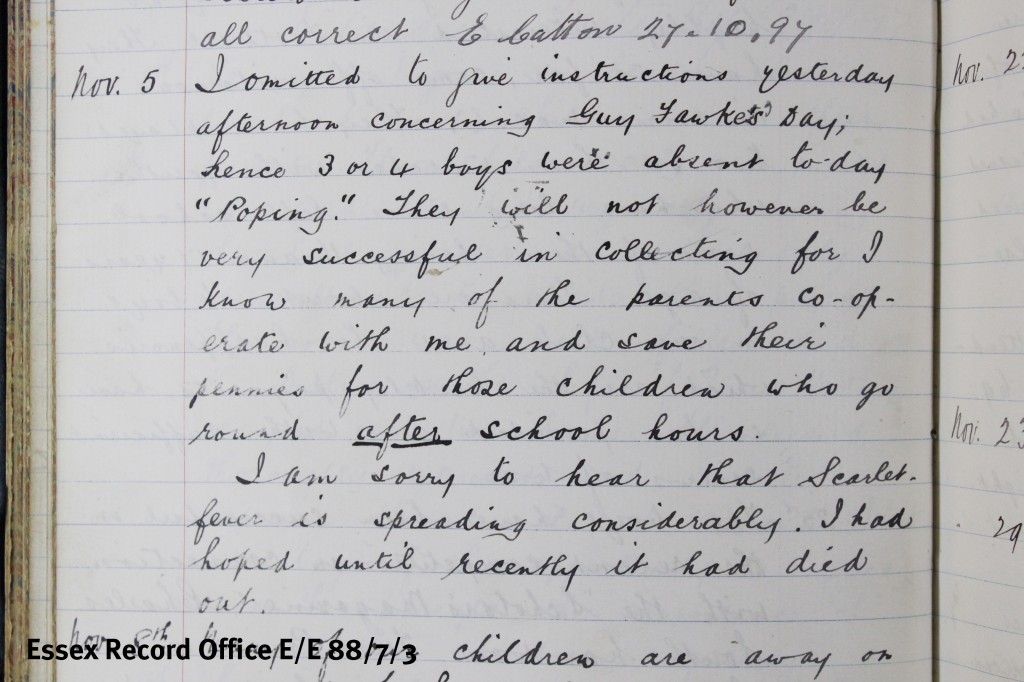Archivist Allyson Lewis takes a look at a battle of wills between a headmaster and his pupils in late-Victorian Purfleet.
E/E 88/7/3
‘Remember, remember the 5th of November, Gunpowder, treason and plot’ begins the rhyme. It commemorates the attempt in 1605 to blow up the Houses of Parliament by a group of conspirators led by Robert Catesby. The aim of the plot was to kill James I and replace him with a Catholic monarch. The group included Guy Fawkes who hid in the cellars of the Parliament building to guard the gunpowder and light the fuse as the King entered the building for the opening of the parliamentary session. He was arrested, tortured into giving up the names of his co-conspirators and duly hanged.
The celebration of the preservation of the Protestant monarchy began almost immediately with the passing of the Observance of 5th November Act in January 1606. Although this was intended as a day of thanksgiving for the safety of the king, it became an excuse for anti-Catholic feeling, particularly after the future Charles I married Henrietta Maria of France, a Catholic princess, in 1625. Effigies of the pope and the devil were burned for the first time that year. 5th November Day was re-established as a celebration of Protestant monarchy after the restoration of Charles II. The landing at Weymouth of William of Orange on 5 November 1688 added another layer of Protestant significance to the day. During the 18th century it became more usual to burn effigies of Guy Fawkes rather than the pope. The Observance of 5th November Act was repealed in 1859 but the tradition of Bonfire Night still continues.
In the 19th century children began a custom of ‘poping’, going from house to house begging ‘a penny for the Guy’ and gathering wood for a large bonfire. In this log book entry, the headmaster of Purfleet School comments on his attempts to prevent boys going ‘poping’ in school hours by encouraging residents to only give to children going round after school. He allowed the boys to bring their costumes into school and change in the school cloakrooms before going out begging for wood, food, drink and pennies, and singing traditional rhymes.
The school log book will be on display in the Searchroom throughout November 2014.

